Professional certification, trade certification, or professional designation, often called simply certification or qualification, is a designation earned by a person to assure qualification to perform a job or task. Not all certifications that use post-nominal letters are an acknowledgement of educational achievement, or an agency appointed to safeguard the public interest.

A certified first responder is a person who has completed a course and received certification in providing pre-hospital care for medical emergencies. Certified individuals should have received much more instruction than someone who is trained in basic first aid and cardiopulmonary resuscitation (CPR) but they are not necessarily a substitute for more advanced emergency medical care rendered by emergency medical technicians and paramedics. First responders typically provide advanced first aid level care, CPR, and automated external defibrillator (AED) usage. The term "certified first responder" is not to be confused with "first responder", which is a generic term referring to the first medically trained responder to arrive on scene and medically trained telecommunication operators who provide pre-arrival medical instructions as trained Emergency Medical Dispatchers (EMD). Many police officers and firefighters are required to receive training as certified first responders. Advanced medical care is typically provided by EMS, although some police officers and firefighters also train to become emergency medical technicians or paramedics.
A credential is a piece of any document that details a qualification, competence, or authority issued to an individual by a third party with a relevant or de facto authority or assumed competence to do so.

A police academy, also known as a law enforcement training center, police college, or police university, is a training school for police cadets, designed to prepare them for the law enforcement agency they will be joining upon graduation, or to otherwise certify an individual as a law enforcement officer, typically a police officer.
CCP most commonly refers to the Chinese Communist Party, the sole ruling party in the People's Republic of China.

Certification is part of testing, inspection and certification and the provision by an independent body of written assurance that the product, service or system in question meets specific requirements. It is the formal attestation or confirmation of certain characteristics of an object, person, or organization. This confirmation is often, but not always, provided by some form of external review, education, assessment, or audit. Accreditation is a specific organization's process of certification. According to the U.S. National Council on Measurement in Education, a certification test is a credentialing test used to determine whether individuals are knowledgeable enough in a given occupational area to be labeled "competent to practice" in that area.

Product certification or product qualification is the process of certifying that a certain product has passed performance tests and quality assurance tests, and meets qualification criteria stipulated in contracts, regulations, or specifications.
Cisco Certifications are the list of the Certifications offered by Cisco Systems. There are four or five levels of certification: Associate (CCNA/CCDA), Professional (CCNP/CCDP), Expert (CCIE/CCDE) and recently Architect, as well as nine different paths for the specific technical field; Routing & Switching, Design, Industrial Network, Network Security, Service Provider, Service Provider Operations, Storage Networking, Voice, Datacenter and Wireless.
There are also a number of the specialist technician, sales, Business, data center certifications, CCAI certified instructor.
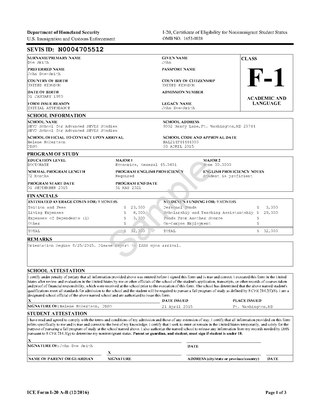
The Form I-20 is a United States Department of Homeland Security, specifically ICE and the Student and Exchange Visitor Program (SEVP), document issued by SEVP-certified schools that provides supporting information on a student's F or M status. Since the introduction of the Student and Exchange Visitor Information System (SEVIS) run by SEVP, the form also includes the student tracking number and school code. The Form I-20 is only for F-1, F-2, M-1, and M-2 statuses. J-1 and J-2 status holders have an equivalent Form DS-2019 which is issued by a United States Department of State-designated J exchange visitor program.
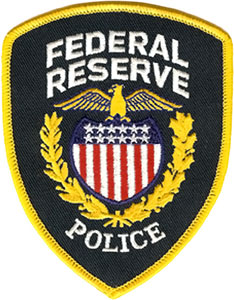
The Federal Reserve Police Department (FRPD) is the law enforcement unit of the Federal Reserve System, the central banking system of the United States.
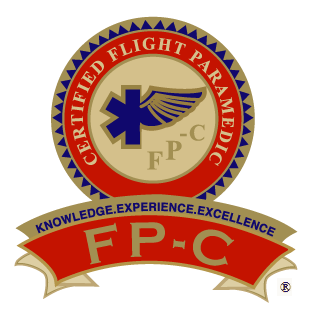
A certified flight paramedic (FP-C) is a person who has met the advanced certification requirements for flight paramedics established for this designation by the International Board of Specialty Certification (IBSC), a not-for-profit organization responsible for the administration and development of specialty certification exams for critical care professionals. The FP-C exam was the first specialty paramedic certification offered by the Board for Critical Care Transport Paramedic Certification in 2000. This certification is designed for experienced paramedics who have demonstrated advanced knowledge of critical care medicine.
The Chief Privacy Officer (CPO) is a senior level executive within a growing number of global corporations, public agencies and other organizations, responsible for managing risks related to information privacy laws and regulations. Variations on the role often carry titles such as "Privacy Officer," "Privacy Leader," and "Privacy Counsel." However, the role of CPO differs significantly from another similarly-titled role, the Data Protection Officer (DPO), a role mandated for some organizations under the GDPR, and the two roles should not be confused or conflated.
Following is a partial list of professional certifications in financial services, with an overview of the educational and continuing requirements for each; see Professional certification § Accountancy, auditing and finance and Category:Professional certification in finance for all articles. As the field of finance has increased in complexity in recent years, the number of available designations has grown, and, correspondingly, some will have more recognition than others. Note that in the US, many state securities and insurance regulators do not allow financial professionals to use a designation — in particular a "senior" designation — unless it has been accredited by either the American National Standards Institute or the National Commission for Certifying Agencies.
The International Foundation for Protection Officers (IFPO) is a non-profit organization headquartered in Naples, Florida, United States. The organization was established in January 1988 to help address the training and certification needs of security/protection officers and their supervisors internationally.
Certified safety professional is a certification offered by the Board of Certified Safety Professionals. The accreditation is used in the United States by the National Commission for Certifying Agencies and internationally by the International Organization for Standardization/International Electrotechnical Commission and 193 Countries Consortium.
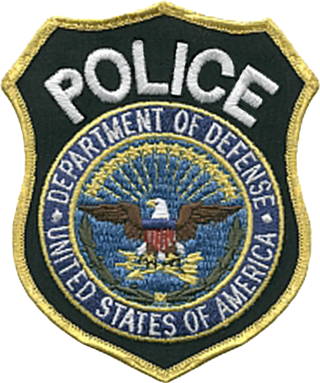
United States Department of Defense Police are the uniformed civilian police officers of the United States Department of Defense, various branches of the United States Armed Forces, or specific DoD activities.

A security guard is a person employed by a government or private party to protect the employing party's assets from a variety of hazards by enforcing preventative measures. Security guards do this by maintaining a high-visibility presence to deter illegal and inappropriate actions, looking for signs of crime or other hazards, taking action to minimize damage, and reporting any incidents to their clients and emergency services, as appropriate.
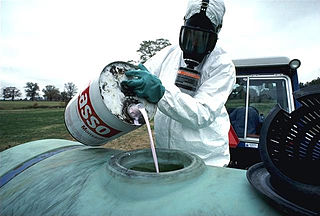
Pesticide regulation in the United States is primarily a responsibility of the Environmental Protection Agency (EPA). In America, it was not till the 1950s that pesticides were regulated in terms of their safety. The Pesticides Control Amendment (PCA) of 1954 was the first time Congress passed guidance regarding the establishment of safe limits for pesticide residues on food. It authorized the Food and Drug Administration (FDA) to ban pesticides they determined to be unsafe if they were sprayed directly on food. The Food Additives Amendment, which included the Delaney Clause, prohibited the pesticide residues from any carcinogenic pesticides in processed food. In 1959, pesticides were required to be registered.
The Campus Privacy Officer (CPO) is a position within a post-secondary university that ensures that student, faculty, and parent privacy is maintained. The CPO role was created because of growing privacy concerns across college campuses. The responsibilities of the CPO vary depending on the specific needs of the campus community. Their daily tasks may include drafting new privacy policies for their respective college campus, creating a curriculum that informs teachers and students about privacy, helping to investigate any privacy breaches within the university, and ensuring that the university is abiding by current state and federal privacy laws. CPOs are also responsible for connecting with student and faculty groups across the entire campus in order to understand the privacy concerns of the campus. The role of CPO is an expanding profession within the United States and other countries, such as Canada and South Africa. There are numerous organizations that exist to provide training for CPOs and support them.









